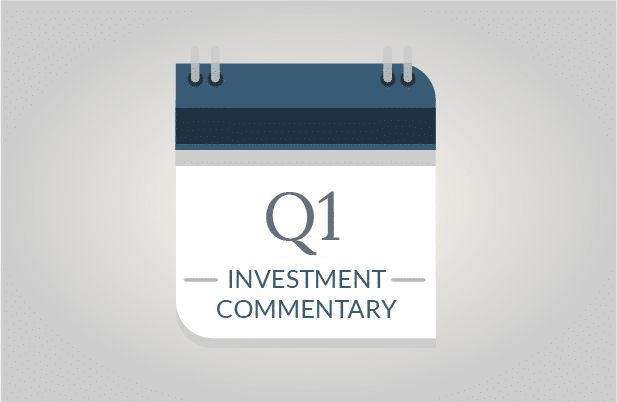It’s hard to find much good news during the coronavirus, but refinancing your mortgage during COVID-19 could help you save money long-term. Interest rates have plummeted, taking mortgage rates along with them. As a result, it might be advantageous to compare your existing mortgage to current rates to determine if refinancing your mortgage would be a smart financial move. We discuss the main points you should consider, during all times, as well as during COVID-19.
Mortgage Interest Rate Volatility
Mortgage interest rates have been extremely volatile since COVID-19 took hold in the U.S and in the financial markets. Interest rates have been so volatile that some banks put temporary halts on lending, particularly for refinancing mortgages. If recent volatility persists, mortgage refinance options could be difficult to find, and choices available one day might not be available the next. Hence, it’s in your best interest to be prepared, know what terms make sense for you to act, and be ready to take initiative if the right opportunity presents itself.
Documents to have ready on quick notice include:
- Recent paystubs
- Past year W-2s
- Information for all recent employers for past few years
- Recent tax returns (at least 2 years)
- Full copies of recent bank and investment statements
- Details on current debt balances and payment obligations
- Figures for annual property taxes, homeowners insurance and homeowner association dues
- Business tax returns, profit and loss statements and K-1s, if applicable.
Size of Your Mortgage
Many lenders are shying away from larger or “jumbo” loans. In fact, some lenders aren’t willing to go above Fannie Mae’s conforming loan limit of $510,000. This means that opportunities are more prevalent for smaller mortgages, and less plentiful for those holding larger mortgage balances.
How To Know If A Refinance Is A Smart Decision
There are a number of financial factors to consider before you refinance, including:
-
What Are The Costs?
Refinancing your mortgage isn’t free. There are costs that are paid to the lender, appraisal fees, title insurance payments, etc. These expenses need to be taken into account to ensure you’re saving enough to outweigh the costs. Every calculation is different, but it typically takes at least a year to recoup the costs, and sometimes several years.
-
How Long Do You Plan To Stay In Your Home?
Given the fact that it can take a year, or several years, to recoup the costs of refinancing, an important consideration is how long you plan to remain in your home. If you think your current home is your forever home, or a home you plan to own for several years, then refinancing might make sense. However, if you’re thinking of moving in the near future, careful financial analysis is certainly recommended.
-
Will Your Monthly Savings Outweigh A Higher Future Debt Balance?
Mortgage payments are amortized over the life of the loan. Amortization schedules heavily allocate interest payments toward the beginning of the loan, with larger principal payments occurring toward the end of the loan. The main take away is that you likely won’t be paying down your loan as fast if you refinance, versus if you keep your current loan. Hence, it’s essential to ensure that your monthly savings are significant enough to outweigh a higher debt balance in the future. As noted above, it typically takes a year, or several years, to breakeven.
Qualification
During times of financial turmoil, lending qualifications can become more stringent. We certainly saw this during the 2008 financial crisis, and we’re starting to see it again during the coronavirus downturn. This means that you need to have all of your financial information ready to move quickly, and you might need to be on stronger financial footing than what was required just a few short weeks and months ago.
What If Your Job Is At Risk?
If your job or your income is at risk, you need to carefully consider two key variables before you refinance:
-
Will You Be Able To Qualify If You Wait?
Income is a key qualification variable. If you’re not sure about the outlook for your job and/or income in the coming months, you need to ask if you should act sooner, rather than later, to ensure qualification.
-
Will You Still Qualify For Mortgage Forbearance?
Mortgages backed by Fannie Mae and Freddie Mac (which represent about 80% of all mortgages) currently allow borrowers to waive payments for up to 12 months if you and your lender agree to temporarily reduce or suspend payments. This option, known as forbearance, is a huge cost savings to homeowners who are facing financial hardships. However, it’s important to note that many new mortgages might not initially (or ever) qualify for forbearance until such loans are backed (if they’re ever backed) by Fannie Mae or Freddie Mac. Hence, if your current mortgage qualifies for forbearance, and you might need forbearance, refinancing might not be the best decision for you.
Are You Willing To Sign In Person?
In person signing is typically still required to finalize your refinance. Ask your lender if an in person meeting is necessary. If yes, carefully consider the potential health risks, particularly if you’re older or have any medical conditions. If you do proceed, we recommend taking your own pen, sitting at a distance from others, perhaps wearing a mask and thoroughly washing your hands upon completion.
As with all financial decisions, SageVest Wealth Management helps clients to carefully weigh all angles to ensure that your ultimate decisions align with your best interests. Please contact us to discuss further.




